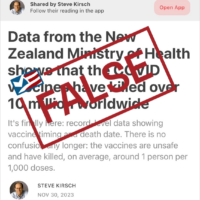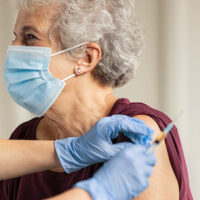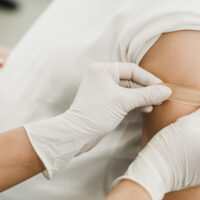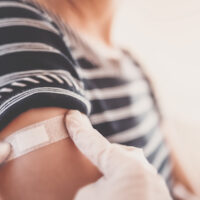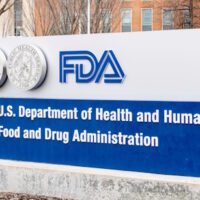COVID-19 vaccination during pregnancy benefits both mother and baby. Side effects are generally mild, and studies don’t show negative effects on the baby. A criticized study that gave COVID-19 vaccines to pregnant rats doesn’t show that vaccines cause autism or that people shouldn’t get COVID-19 vaccines, contrary to claims.
Misconception: Vaccination
Tucker Carlson Video Spreads Falsehoods on COVID-19 Vaccines, WHO Accord
COVID-19 vaccines are generally safe and have not killed 17 million people worldwide, contrary to claims amplified by podcaster Bret Weinstein during an interview with Tucker Carlson. Weinstein also inaccurately characterized a proposed World Health Organization pandemic accord and other changes, claiming they aim to take away “personal and national sovereignty.”
Faulty Science Underpins Florida Surgeon General’s Call to Halt mRNA COVID-19 Vaccination
Yale Preprint Recorded Patient Experiences, Did Not Demonstrate Vaccines Cause New Syndrome
A preprint on a Yale-based study described chronic symptoms self-reported after COVID-19 vaccination by 241 members of an online group. The paper, which has not been peer-reviewed, did not show how common these symptoms are in the general population, nor whether vaccinations caused them — limitations popular online posts did not make clear.
Flawed Analysis of New Zealand Data Doesn’t Show COVID-19 Vaccines Killed Millions
Posts Spread False Claim About Moderna Patent Application
The mRNA COVID-19 vaccines — like many other vaccines — can contain small amounts of DNA left over from the manufacturing process. There’s no evidence this residual DNA causes “turbo cancer,” or very aggressive cancer. Nor did Moderna admit that “mRNA Jabs Cause Turbo-Cancer,” contrary to an online article that misconstrues a line from a patent application.
No Evidence of Link Between U.S. Infant Mortality Rate Increase and COVID-19 Vaccines
A recent federal report shows a 3% increase in the U.S. infant mortality rate between 2021 and 2022, which is the first statistically significant rise in 20 years. The cause of the uptick is unknown, but there’s no evidence that it’s due to COVID-19 vaccination, as some social media posts baselessly suggest.
COVID-19 Vaccination During Pregnancy Is Safe, Has Multiple Benefits
Being vaccinated against COVID-19 helps protect pregnant people from severe COVID-19. When given during pregnancy, the vaccines can also reduce the risk of hospitalization from COVID-19 early in a baby’s life. A new study adds to the evidence that vaccination during pregnancy is safe for babies, contrary to social media and online claims.




